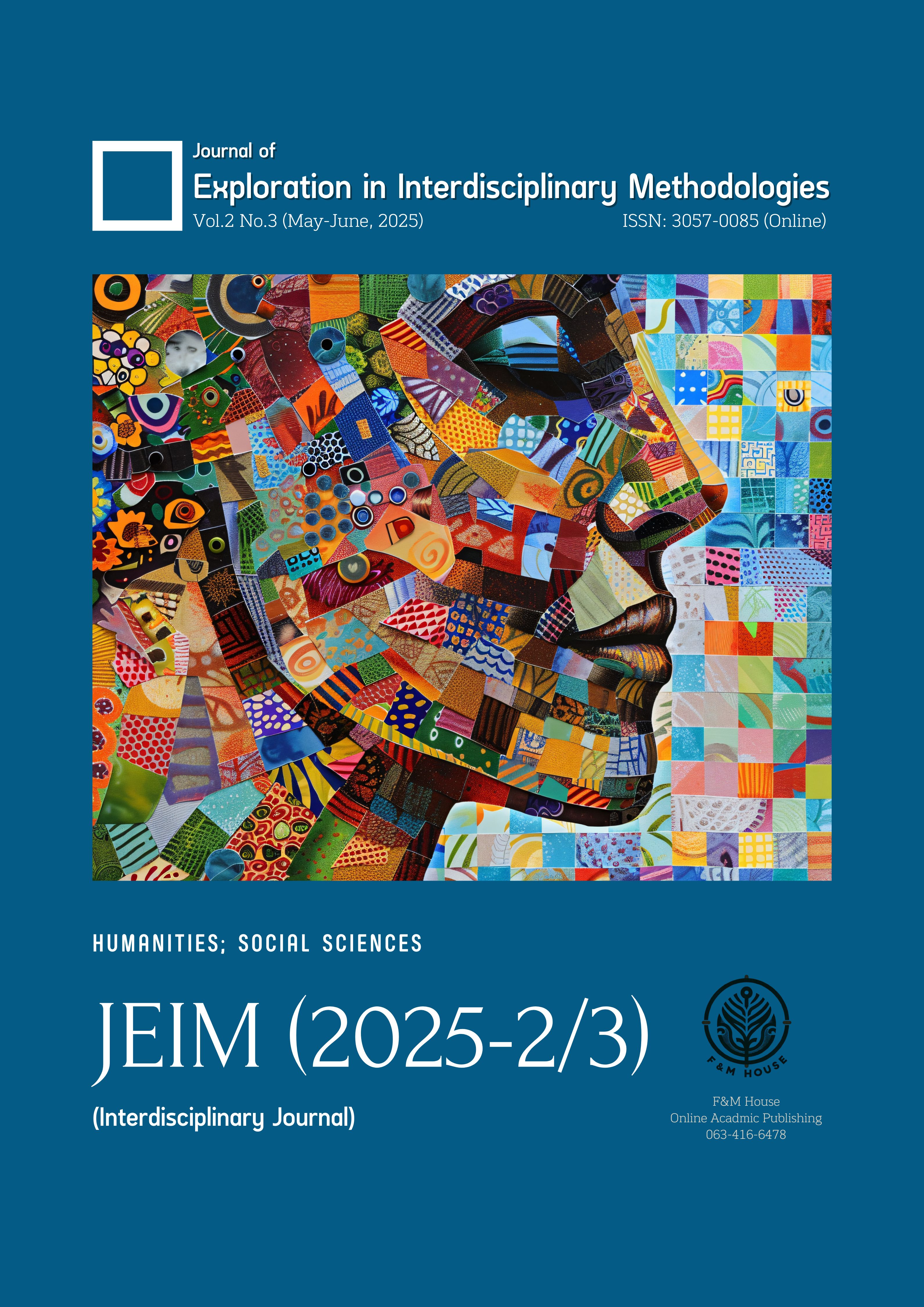Integrating Buddhist Philosophy with Modern Psychology: An Interdisciplinary Perspective
คำสำคัญ:
Buddhist Philosophy, Modern Psychology, Mindfulness-Based Therapy, Emotional Regulation, Interdisciplinary Studiesบทคัดย่อ
This paper explores the integration of Buddhist philosophy and modern psychology, highlighting the interdisciplinary intersections that enrich both fields. Buddhist teachings on mindfulness, suffering, and self-awareness have increasingly influenced contemporary psychological frameworks, particularly in therapeutic practices such as mindfulness-based interventions and cognitive-behavioral therapy. By examining key Buddhist concepts like the Four Noble Truths, non-self (Anatta), and interdependent origination, this study reveals their relevance to psychological theories of consciousness, emotional regulation, and mental well-being. The paper also discusses how Buddhist meditation techniques enhance psychological resilience, reduce stress, and foster compassion. Furthermore, it analyzes challenges in integrating these traditions, such as cultural misinterpretations and ethical considerations in clinical applications. The findings suggest that a balanced synthesis of Buddhist insights and psychological methodologies can offer a holistic approach to mental health, promoting self-awareness, ethical decision-making, and emotional well-being. This interdisciplinary exploration contributes to the broader discourse on integrating spiritual wisdom with scientific inquiry to enhance human flourishing.
เอกสารอ้างอิง
Alasuutari, P., Apfelthaler, G., Kainzbauer, A., Bakhtin, M. M., Bedi, H., Cameron, K. S., et al. (2014). Ambicultural blending between Eastern and Western paradigms: Fresh perspectives for international management research. Retrieved from https://core.ac.uk/download/29472150.pdf
Alexander, R., Aragón, O. R., Bookwala, J., Cherbuin, N., Gatt, J. M., Kahrilas, I. J., Kästner, N., et al. (2020). The neuroscience of positive emotions and affect: Implications for cultivating happiness and wellbeing. Neuroscience & Biobehavioral Reviews, 121, 220-249. Retrieved from https://doi.org/10.1016/j.neubiorev.2020.12.002
Alexandrova, A. (2017). A philosophy for the science of well-being. Oxford University Press eBooks. Retrieved from https://doi.org/10.1093/oso/9780199300518.001.0001
Allen, P. (2015). Philosophical commitments, empirical evidence, and theoretical psychology. Retrieved from https://core.ac.uk/download/131209957.pdf
Barilaro, P., Bianco, S., & Palmieri, A. (2016). Traditional meditation, mindfulness and psychodynamic approach: An integrative perspective. Retrieved from https://core.ac.uk/download/53533019.pdf
Bouckaert, L., & Zsolnai, L. (2012). Spirituality and business: An interdisciplinary overview. Retrieved from https://core.ac.uk/download/12355661.pdf
Bui, Q.-K., Ho, M.-T., Ho, M.-T., La, et al. (2019). Cultural evolution in Vietnam’s early 20th century: A Bayesian networks analysis of Franco-Chinese house designs. Retrieved from https://core.ac.uk/download/188184871.pdf
Burton, N., & Vu, M. C. (2020). Mindful reflexivity: Unpacking the process of transformative learning in mindfulness and discernment. Retrieved from https://core.ac.uk/download/286027767.pdf
California Institute of Integral Studies (CIIS). (2006). California Institute of Integral Studies - Catalog 2006-2007. Retrieved from https://core.ac.uk/download/217366649.pdf
California Institute of Integral Studies (CIIS). (2008). California Institute of Integral Studies - Catalog 2008-2009. Retrieved from https://core.ac.uk/download/217366752.pdf
California Institute of Integral Studies (CIIS). (2012). California Institute of Integral Studies - Catalog 2012-2013. Retrieved from https://core.ac.uk/download/217366750.pdf
Coseru, C. (2013). Reason and experience in Buddhist epistemology. Retrieved from https://core.ac.uk/download/231876610.pdf
Coseru, C. (2019). Consciousness, naturalism, and human flourishing. Retrieved from https://core.ac.uk/download/231876602.pdf
Crane, R., Brewer, J. A., Feldman, C., Kabat‐Zinn, J., Santorelli, S., Williams, J. M. G., & Kuyken, W. (2016). What defines mindfulness-based programs? The warp and the weft. Psychological Medicine, 47(6), 990-999. Retrieved from https://doi.org/10.1017/s0033291716003317
Epictetus, Garfield, J., Goleman, D., Hadot, P., Irvine, W. B., & Magie, D. (2020). Why practice philosophy as a way of life? Retrieved from https://core.ac.uk/download/199235821.pdf
Federman, A. (2011). What Buddhism taught cognitive science about self, mind and brain. Retrieved from https://core.ac.uk/download/13310043.pdf
Finnigan, B. (2025). Karma, moral responsibility, and Buddhist ethics. Retrieved from https://core.ac.uk/download/199235632.pdf
Francovich, C. (2010). An interpretation of the continuous adaptation of the self/environment process. Retrieved from https://core.ac.uk/download/286357450.pdf
Gamage, S. (2016). A Buddhist approach to knowledge construction and education in Sri Lanka (Ceylon) in the context of colonisation and southern theory. Retrieved from https://core.ac.uk/download/84894588.pdf
Ghali, L. B. (2015). Mindfulness and meditation: Transforming therapeutic presence in clinical social work practice. Retrieved from https://core.ac.uk/download/217159067.pdf
Good, D., Lyddy, C., Glomb, T. M., Bono, J. E., Brown, K. W., Duffy, M. K., & Baer, R. A. (2015). Contemplating mindfulness at work. Journal of Management, 42(1), 114-142. Retrieved from https://doi.org/10.1177/0149206315617003
Gopnik, A., Kaplan, A., Wachholtz, A. B., Buddhaghosa, B., Knutson, B., Bourgeault, C., et al. (2013). The grinch who stole wisdom. Retrieved from https://core.ac.uk/download/323311196.pdf
Griffiths, M. D., Shonin, E., & Van Gordon, W. (2014). The emerging role of Buddhism in clinical psychology: Toward effective integration. Retrieved from https://core.ac.uk/download/30650561.pdf
Hasan, A., Yusuf, A., Malik, B., Brown, J. H., El Shakry, O., & Haque, A. (2019). An interdisciplinary framework for Islamic cognitive theories. Retrieved from https://core.ac.uk/download/197623200.pdf
Hendriks, T., de Jong, J., & Cramer, H. (2017). The effects of yoga on positive mental health among healthy adults: A systematic review and meta-analysis. The Journal of Alternative and Complementary Medicine, 23(7), 505-517. Retrieved from https://doi.org/10.1089/acm.2016.0334
Hipólito, I., & Martins, J. (2017). Mind-life continuity: A qualitative study of conscious experience. Retrieved from https://core.ac.uk/download/158370675.pdf
Husgafvel, V. (2020). Meditation in contemporary contexts: Current discussions. Retrieved from https://core.ac.uk/download/554077172.pdf
Kim, A. (2014). The construct of self within a multicultural context: A critical analysis. Retrieved from https://core.ac.uk/download/288853903.pdf
Kim, B., Kim, S., & King, B. (2019). Religious tourism studies: Evolution, progress, and future prospects. Tourism Recreation Research, 45(2), 185-203. Retrieved from https://doi.org/10.1080/02508281.2019.1664084
Kirmayer, L. J. (2015). Mindfulness in cultural context. Transcultural Psychiatry, 52(4), 447-469. Retrieved from https://doi.org/10.1177/1363461515598949
Kočárová, R., Horáček, J., & Carhart‐Harris, R. L. (2021). Does psychedelic therapy have a transdiagnostic action and prophylactic potential? Frontiers in Psychiatry, 12, 661233. Retrieved from https://doi.org/10.3389/fpsyt.2021.661233
Kumari, A., Kumar, A., & Behura, A. K. (2023). Ego: An epistemological analysis of self-centric consciousness. Retrieved from https://core.ac.uk/download/577938097.pdf
Leonardi, A. (2017). Holistic education at Naropa and Dila: Religious or educational innovation? Retrieved from https://core.ac.uk/download/211329253.pdf
Leong, D. (2025). Quantum resonance with the mind: A comparative analysis of Buddhism’s eighth consciousness, quantum holography and Jung’s collective unconscious. Retrieved from https://core.ac.uk/download/597031375.pdf
Lo Turco, B. (2016). Buddhism and modernity: In the margin of Donald S. Lopez Jr.’s “Buddhism and Science”. Retrieved from https://core.ac.uk/download/84672246.pdf
Malik, M. M., & Obhasa. (2023). The concept of non-self in Theravāda Buddhism and its relation to human behavior. Retrieved from https://core.ac.uk/download/552518593.pdf
Marques, J. (2017). A mindful moral compass for twenty-first century leadership: The noble eightfold path. Retrieved from https://core.ac.uk/download/144553124.pdf
Morrow, E., Zidaru, T., Ross, F., Mason, C., Patel, K., Ream, M., & Stockley, R. (2023). Artificial intelligence technologies and compassion in healthcare: A systematic scoping review. Frontiers in Psychology, 13, 971044. Retrieved from https://doi.org/10.3389/fpsyg.2022.971044
Nandarathana, R. N., & Ranjan, J. K. (2024). The application of Theravāda Buddhist meditation practices and techniques in mindfulness-based interventions. Retrieved from https://core.ac.uk/download/616613483.pdf
Neal, J., Altman, Y., Mayrhofer, W., Gill, R., Zsolnai, L., Pavlovich, K., Delmestri, G., et al. (2022). Workplace spirituality. De Gruyter eBooks. Retrieved from https://doi.org/10.1515/9783110711349
Pihkala, P. (2020). Eco-anxiety and environmental education. Sustainability, 12(23), 10149. Retrieved from https://doi.org/10.3390/su122310149
Pornpitchanarong, S. (2021). Potential development of volunteer monks to heal patient’s minds by Dharmas. Retrieved from https://core.ac.uk/download/621412109.pdf
Rivers, J. S. (2020). Integrating trauma-sensitive mindfulness interventions into urban high schools for the benefit of both teachers and students. Retrieved from https://core.ac.uk/download/334995925.pdf
Sato, A. (2011). Integrating Morita therapy and art therapy: An analysis. Retrieved from https://core.ac.uk/download/524654599.pdf
Schad, J., Lewis, M. W., Raisch, S., & Smith, W. K. (2016). Paradox research in management science: Looking back to move forward. Academy of Management Annals, 10(1), 5-64. Retrieved from https://doi.org/10.1080/19416520.2016.1162422
Sion, A. (2008). The self. Retrieved from https://core.ac.uk/download/199235004.pdf
Stoeber, M. (2015). Exploring processes and dynamics of mystical contemplative meditation: Some Christian-Buddhist parallels in relation to transpersonal theory. Retrieved from https://core.ac.uk/download/153326469.pdf
Trotter, C. S. (2018). Buddhism as therapy: The instrumentalisation of mindfulness in Western psychotherapy. Retrieved from https://core.ac.uk/download/226956034.pdf
Trownsell, T., Tickner, A. B., Querejazu, A., Reddekop, J., Shani, G., Shimizu, K., Behera, N. C., et al. (2020). Differing about difference: Relational IR from around the world. International Studies Perspectives, 22(1), 25-64. Retrieved from https://doi.org/10.1093/isp/ekaa008
Verschuuren, B., Mallarach, J.-M., Bernbaum, E., Spoon, J., Brown, S., Borde, R., Brown, J., et al. (2021). Cultural and spiritual significance of nature: Guidance for protected and conserved area governance and management. Retrieved from https://doi.org/10.2305/iucn.ch.2021.pag.32.en
Walsh, R. (2015). What is wisdom? Cross-cultural and cross-disciplinary syntheses. Retrieved from https://core.ac.uk/download/323082469.pdf
Zidny, R., Sjöström, J., & Eilks, I. (2020). A multi-perspective reflection on how Indigenous knowledge and related ideas can improve science education for sustainability. Science & Education, 29(1), 145-185. Retrieved from https://doi.org/10.1007/s11191-019-00100-x







